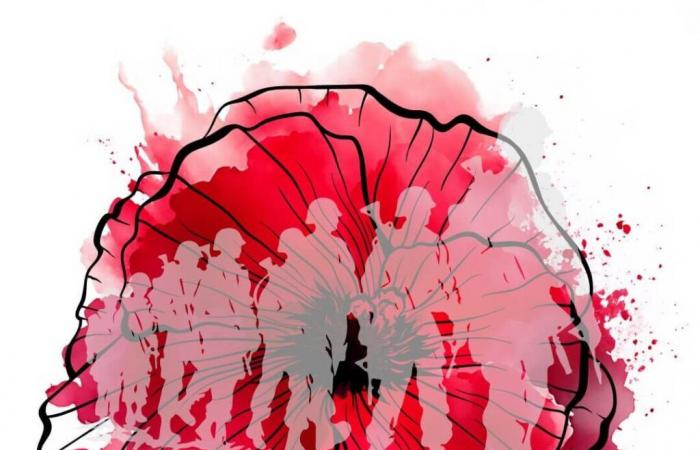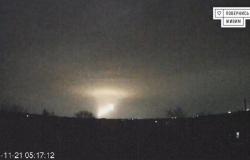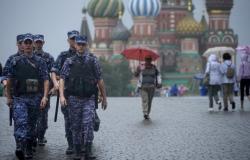Visual credit: Hidaya Tchassanti — Artistic Director
Column written by Antoine Jetté-Ottavi — Head of the Arts and Culture section
November 11 marks Remembrance Day, an annual celebration to remember and honor soldiers, veterans and all those who have served in the armed forces. The date corresponds to the anniversary of the armistice which ended the First World War in 1918. The poppy is its symbol, inspired by the poem “ In Flanders Fields » by John McCrae, a Canadian soldier, doctor and professor who died serving in the war, and is worn as a sign of respect.
This blood-red flower grew in the battlefields of Flanders in Belgium. The place was completely ravaged by bombings and fighting: the poppy, a resilient flower, accompanied the soldiers, growing on the damaged land, then on their graves. This vision strongly impacted John McCrae, who made it a symbol of rebirth, sacrifice, war and mourning through his writings.
Even today, we can see veterans, family members of former soldiers and patriots wearing the scarlet petals on their clothing. The poppy has become the image of remembrance. Then, like this, like that… Time has made it a part of our Canadian culture, imbued in our writings, our paintings, our monuments, our cinema and our photography.
Influence on popular culture
Whether military portraits by Gertrude Kearns or the musical works during the Remembrance Day ceremoniesseveral works bear witness to the cultural impact of the war on Canadian society. These works allow us to transmit stories of war, carrying all its horrors and its repercussions on the mind as well as the body. Through these works, we are invited to reflect on the importance and meaning of peace and sacrifice.
For young Canadians who have not experienced the world wars or any other conflict situation, Remembrance Day certainly does not have the same weight or meaning as it does on ours. ancestors. Nevertheless, these works, whether visual or sensory, offer the chance to our present and future generations to understand the pain experienced by our veterans.
I am thinking in particular of The Great Warproduced in 2007 by the National Film Board of Canada. This four-part documentary series presents Canadian experiences during the First World War. This feature film has certainly been presented in history or ethics and culture classes in secondary schools: it is one of the most complete productions on the subject and often serves as an educational tool. Thus, this film quickly became a reference image on Memorial Day.
In the feature film, we can see excerpts from diaries, letters from soldiers and testimonies from descendants, all in order to tell the personal and collective experiences of Canadians on the front and behind battlefields. This documentary had a notable influence on the representation of war in other audiovisual media, such as Apocalypse: World War I. Released in 2014, we employ similar techniques, such as the use of archival footage and immersive storytelling. We can also make a connection with the film Passchendaele by Paul Gross, released in 2008, which depicts the experience of Canadian soldiers and pays particular attention to historical details.
International values
In my opinion, Remembrance Day not only inspires our national artists, but also integrates universal values into Canadian culture by recalling essential principles such as respect, memory, peace and unity. These values transcend borders and generations, allowing Remembrance Day to act as a bridge between shared human experiences, profoundly influencing Canadian identity.
This day of commemoration allows us, Canadians, to recognize the contributions made during the war and to strengthen community ties. It is in this spirit of unison that we see monuments appear like The Cross of Sacrificecreated by George W. Hill in 1919, which serves as a symbol to commemorate our fallen soldiers. It is present in many memory sites in Canada, including here in Ottawa.
More recently, in 2022, local initiatives allowed Toronto to raise in Coronation Park a Canadian flag that flew at Vimy Ridge in 2020. These actions further demonstrate our country’s ongoing commitment to honoring its veterans and remember the importance of Remembrance Day in our culture.
Remembrance Day remains in our unconscious, and not just on November 11th. Its symbolism ignites artists across the country and serves to transmit cultural values day after day, reminding us daily of the sacrifices made for our protection.






